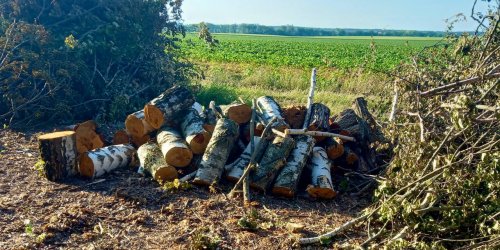On Thursday, March 21, the world will celebrate the International or World Forestry Day, which aims to draw public attention to the importance of forest conservation. Forests play an important role in the life of the entire planet, as they produce the necessary oxygen, absorb greenhouse carbon dioxide, regulate the water balance, etc.
EcoPolitic has prepared interesting facts about forests and the importance of their preservation for its readers.
Forests are the largest carbon sinks and the second largest producer of oxygen, after the oceans. Forests also reduce noise and dust pollution. For example, a forest belt along a highway reduces noise levels by 11 decibels, and 1 hectare of forest retains up to 100 tons of dust per year, which causes a number of diseases in humans.
A forest is not just trees, but a complex ecosystem that combines herbaceous and woody plants, fungi, insects, mammals, and other animals. In addition to living plants, dead trees are also important for the forest, as they are home to fungi and insects. These organisms not only process wood, closing the natural cycle of substances, but also serve as food for other forest inhabitants. The hollows of old trees are also home to birds and mammals. Forests are home to 80% of all biodiversity on land.
Trees are the backbone of any forest, and their destruction leads to the death of the entire ecosystem. For example, cutting down trees changes the intensity of sunlight and the microclimate, which leads to the disappearance of grasses and flowers. Their place is quickly taken by invasive (alien) species and ruderals, the so-called weeds. This leads to the degradation of the ecosystem, its destruction, and its rebirth into another.
Every year, more than 13 million hectares of forests disappear in the world, which is the size of England. Forests are cut down to increase the area of agricultural land, build new roads and extract minerals. Wood is used as a raw material for the production of paper, furniture, etc. In addition to planned deforestation, trees are also destroyed by black loggers.
Forests are also becoming victims of climate change, as the intensity and number of heat waves increases and the amount of precipitation decreases. This increases hot and dry conditions that help fires spread faster, burn longer, and rage more intensely.
In addition, forest fires are caused by careless fire management and the barbaric Ukrainian practice of burning dead wood. Fire from such management can easily get out of control and cover hectares of ecosystems, including forests.
A separate threat to Ukraine's forests is the fighting, which has damaged about a third of the forests. In addition, the occupiers deliberately set fire to forests and use trees to build fortifications, even in protected areas.
However, everyone can help the forests survive. To do this, you should
- start sorting paper waste, because 100 kg of waste paper saves 1 tree, and recycling also reduces the amount of water and energy used in production;
- give preference to goods made of recycled paper, digital receipts instead of traditional ones;
- refuse from unnecessary paper packaging;
- reuse mailing boxes;
- switch to electronic versions of documents, e.g. scanning rather than copying them;
- use both sides of the paper when printing;
- Observe fire safety in forests and do not leave garbage in nature, especially glass, which can work as a lens and cause a fire;
- join the tree planting campaign.
Earlier, EoPolitic wrote, that the world celebrates the first International Earth Day on March 20, which aims to draw attention to the miracle of life and the need for joint efforts to preserve the planet's resources.





